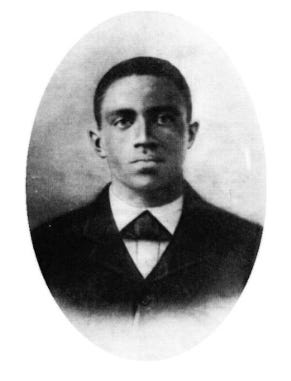The state of Texas is seeking to whitewash the history it teaches in public schools to remove critical examinations of slavery and anti-Mexican discrimination, because if we don’t teach children about that in school, they will never find out on their own.
That last part is sarcasm.
Beyond the dulling effect such a false retelling will have on Texas students, such whitewashing could have far-reaching effects, given the state’s out-sized role in choosing public school textbooks. (Perhaps you remember this New York Times comparison between history as taught in Texas, and as taught in California.)
Let me tell you about my own public school education in the Missouri Ozarks, circa 1960s to the late 1970s. We used to make jokes that certain people who were still fighting the War of Northern Aggression, but in fact, the history I learned growing up left out African Americans, slavery, Jim Crow, all of it, so that protests at the time in far-off Kansas City and St. Louis seemed like just a bunch of malcontents, whining in unison.
I’m not proud of that, but I was a kid and drinking in strictly what was handed to me by my teachers and parents. If you have no context (and don’t take time, as was the case with me, to educate yourself beyond what’s on the next test), the multiple indignities, discrimination, and murders perpetrated onto Black and brown bodies can seem like an aberration, rather than business as usual.
That means you spend your life trying to figure why people are so angry. Better than you learn history, and know why they are.
My high school friend Stan put me onto a book, “White Man’s Heaven: The Lynching and Expulsion of Blacks in the Southern Ozarks, 1894-1909,” by Kimberly Harper. I read that book with my heart pounding, and still carry on my phone a photo of Horace Duncan. Just before midnight on April 14, 1906, Mr. Duncan and Fred Coker were pulled from a Springfield, Mo., jail and lynched over an accusation by a white woman who said she’d been assaulted by two Black men. That may have happened, but there was no evidence against Mr. Duncan or Mr. Coker, and their boss came to say they’d been at work during the time of the alleged assault. It didn’t matter. The men were hung and their bodies burned. The mob then returned to the jail and lynched another Black man, Will Allen. Despite there being some 3,000 people (including children) in the mob, no one was convicted of any crime — not murder, not vigilantism, nothing.
My God. A man named Thomas Gilyard was lynched in Joplin, Mo., in 1903, as well as many others in the little towns scattered around my own hometown, which was a sundown town, though by the time I grew up, the sign that labeled it as such had been shot to smithereens. After the lynchings, as happened with the murder of Mr. Gilyard, the town’s Black residents would leave or be forced to leave. A San Francisco newspaper headline said: “Joplin’s Entire Colored Population Is Driven From the City.” That explains why my hometown was lily-white when I was growing up. We’d run everyone off.
After reading the book, I sent a fan letter to Ms. Harper, and I wrote to the head of the history department at my old high school to recommend this book. That went about as well as you might expect. The head of history allowed that the school really couldn’t teach this history because some of the descendants of the perpetrators were sitting right there in the classrooms.
We went back and forth until she stopped answering my emails. I have not pursued it but I might.
When you aren’t taught the full history of your home state, your hometown, or your country, you go through life with blinders on. When states like Texas (and yes, Missouri) seek to whitewash history, they are only putting off the inevitable, when the truth comes out and you have yet another generation of students left feeling betrayed and angry — and spending the rest of their lives catching up. Better we look at it — all of it, as painful as it may be. The descendants of the perpetrators — all of us — need to hear this.




Thank you for the shout-out Susan, and the reminder that we should keep pressing our alma mater to teach Ms. Harper's book. It should be required reading for every single Southwest Missouri high school student.
You've got to be carefully taught...